

The template provided by the PNAS Article template in the rticles package makes it very easy and convenient to create attractive looking two-column papers with an option to switch to a one-column paper.
There were however a few changes we wanted to make such as the use of standard natbib citations, more extended use of color, a different font as well as the removal of a number of PNAS-specific title page items as well as general code and use simplification via a single LaTeX class file. So this pinp package started.
As of release 0.0.2, the package now has a vignette:
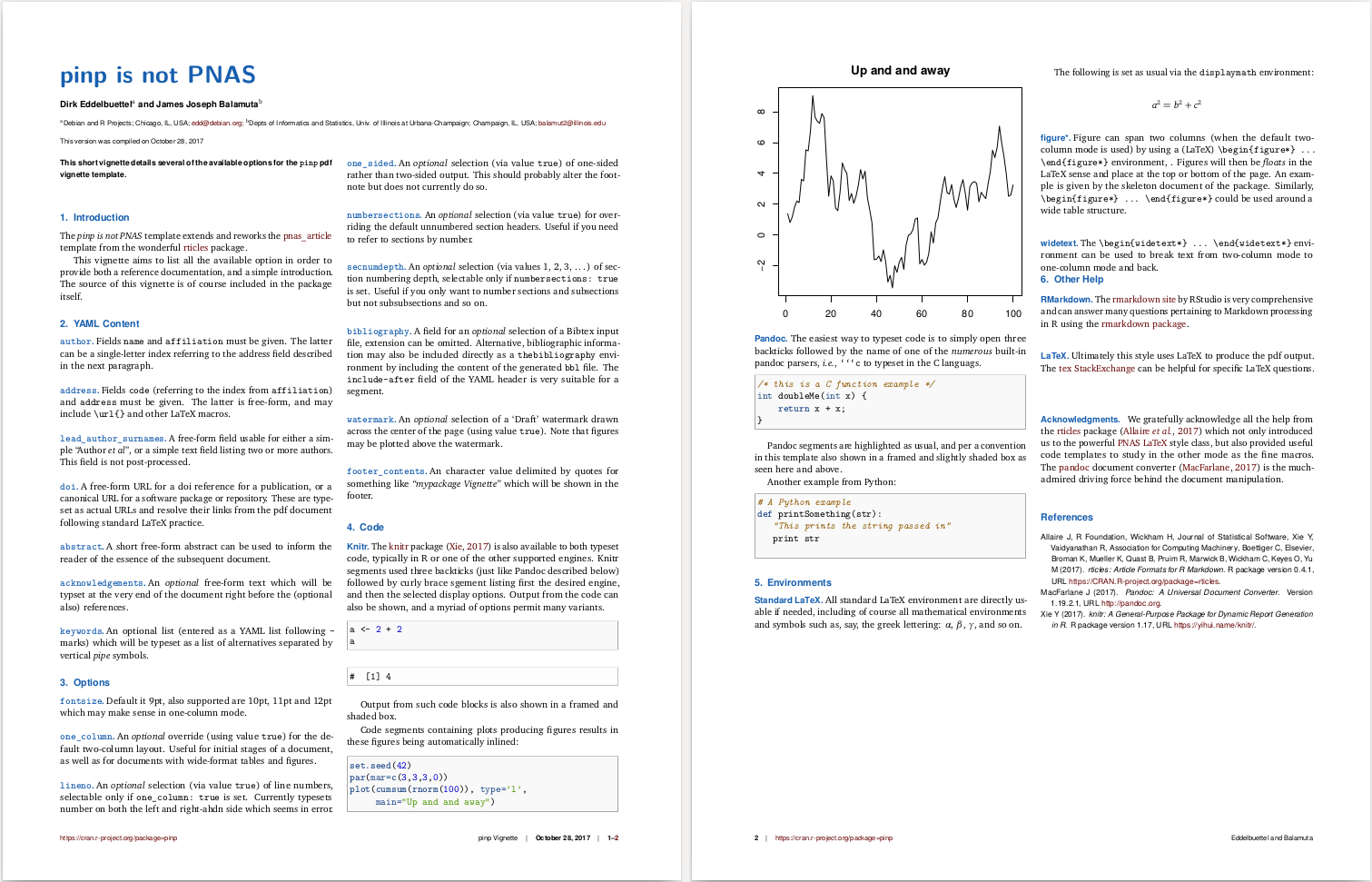
A complete pdf example of the two-column default template is provided here by the new introductory Rcpp vignette, which is itself based on our PeerJ Prepint.
A screenshot of the first two pages:
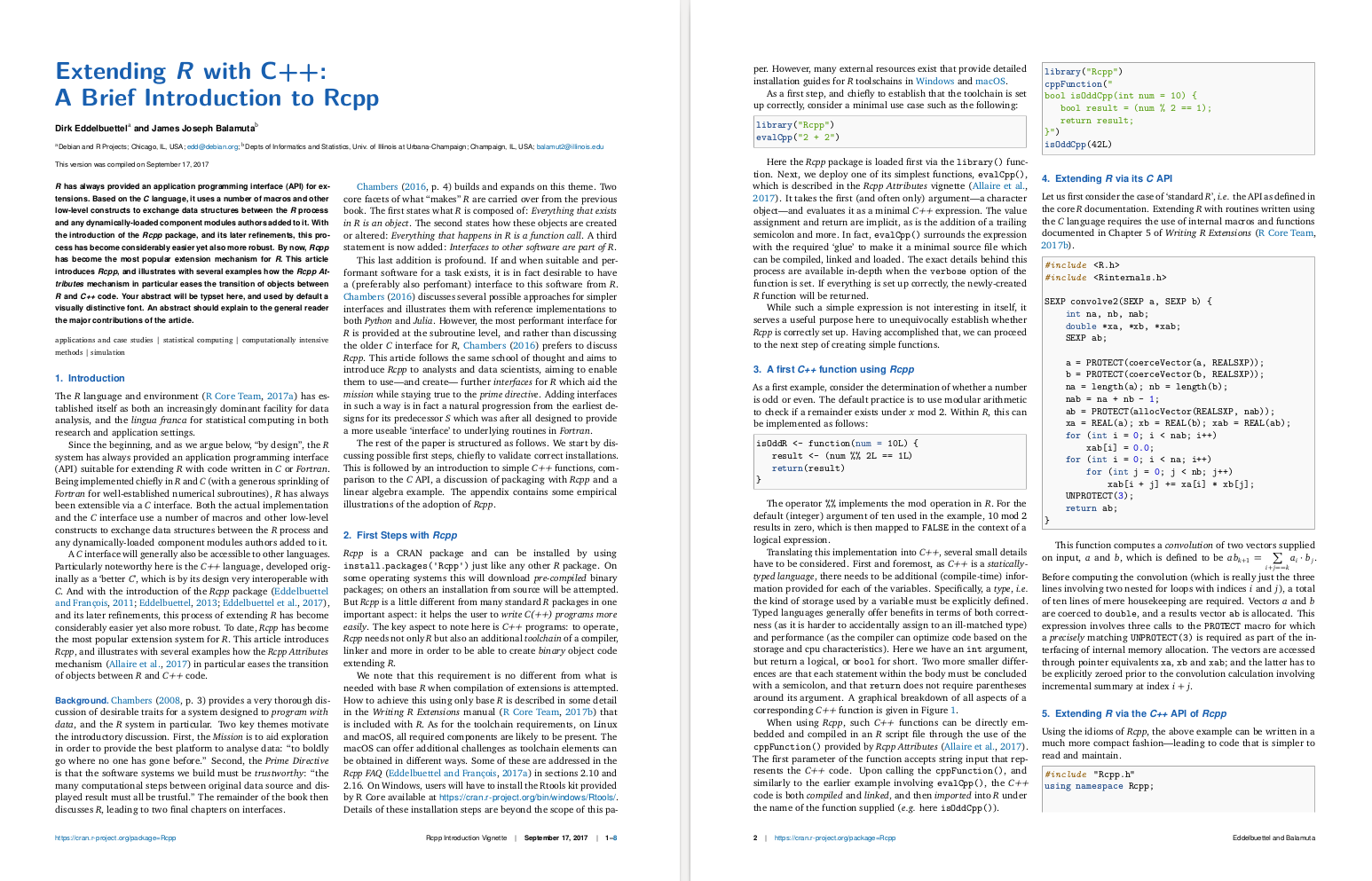
and the next two pages, showing a two-column figure
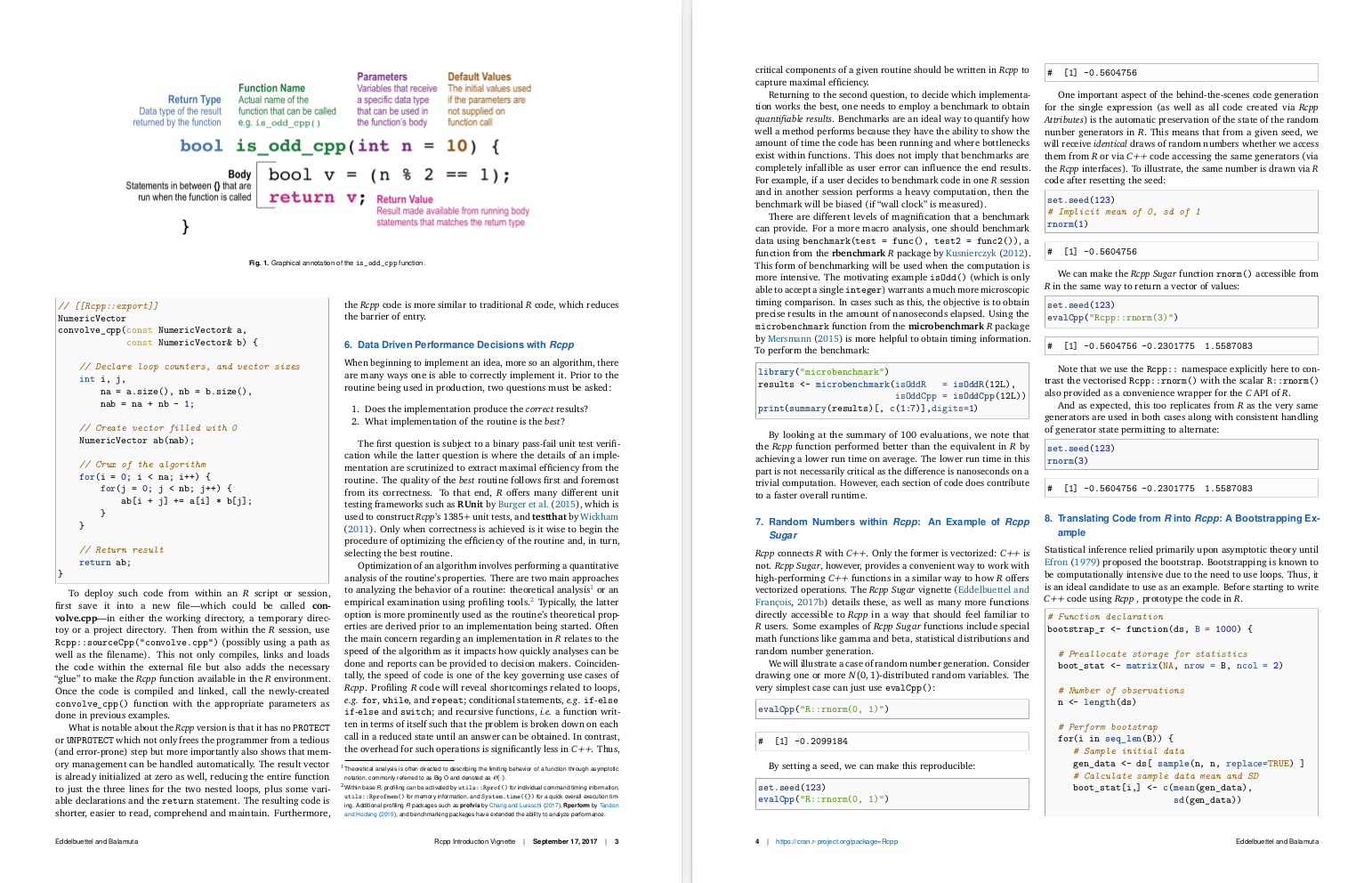
followed by pages five and six
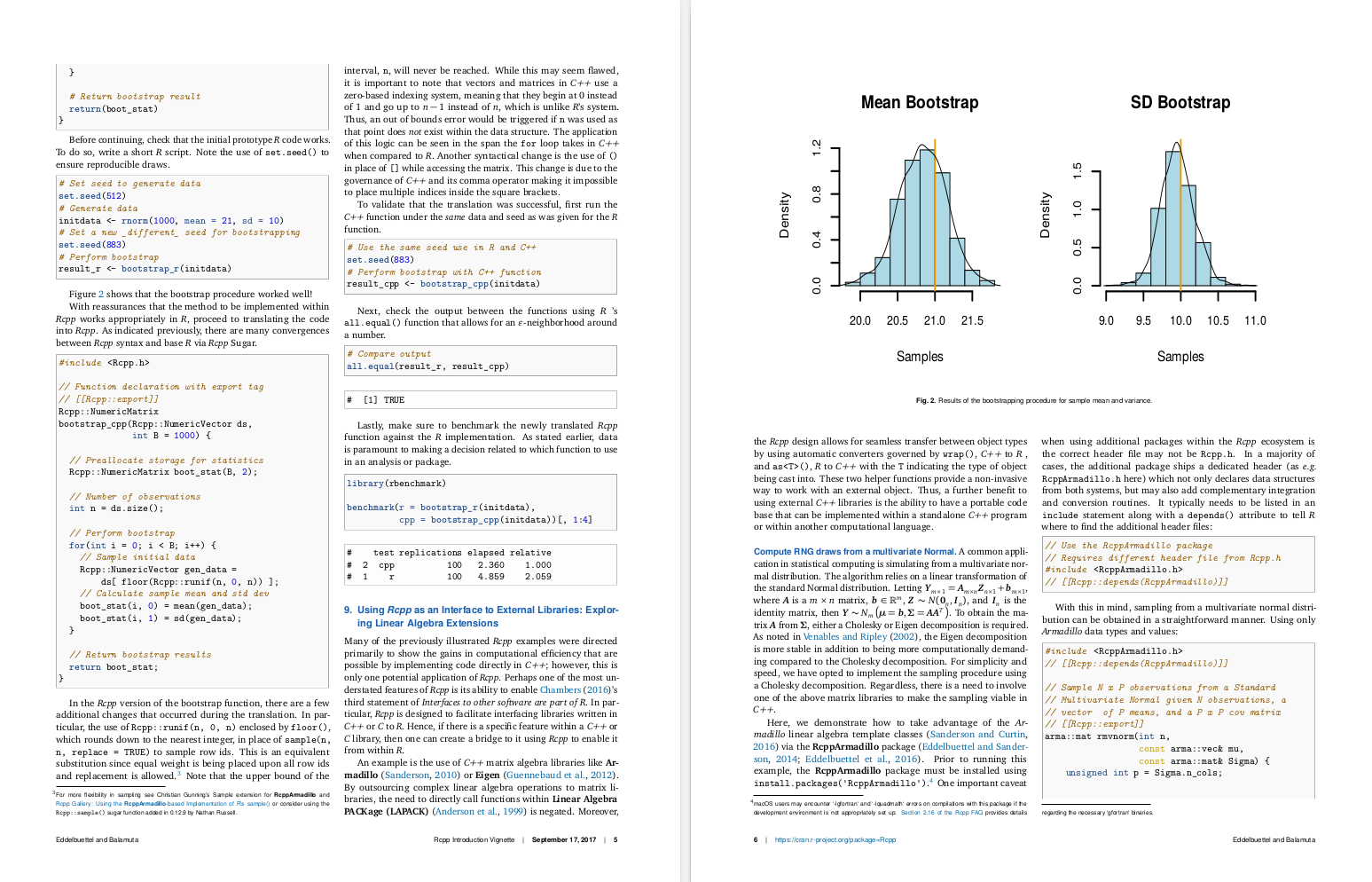
and the final two pages:
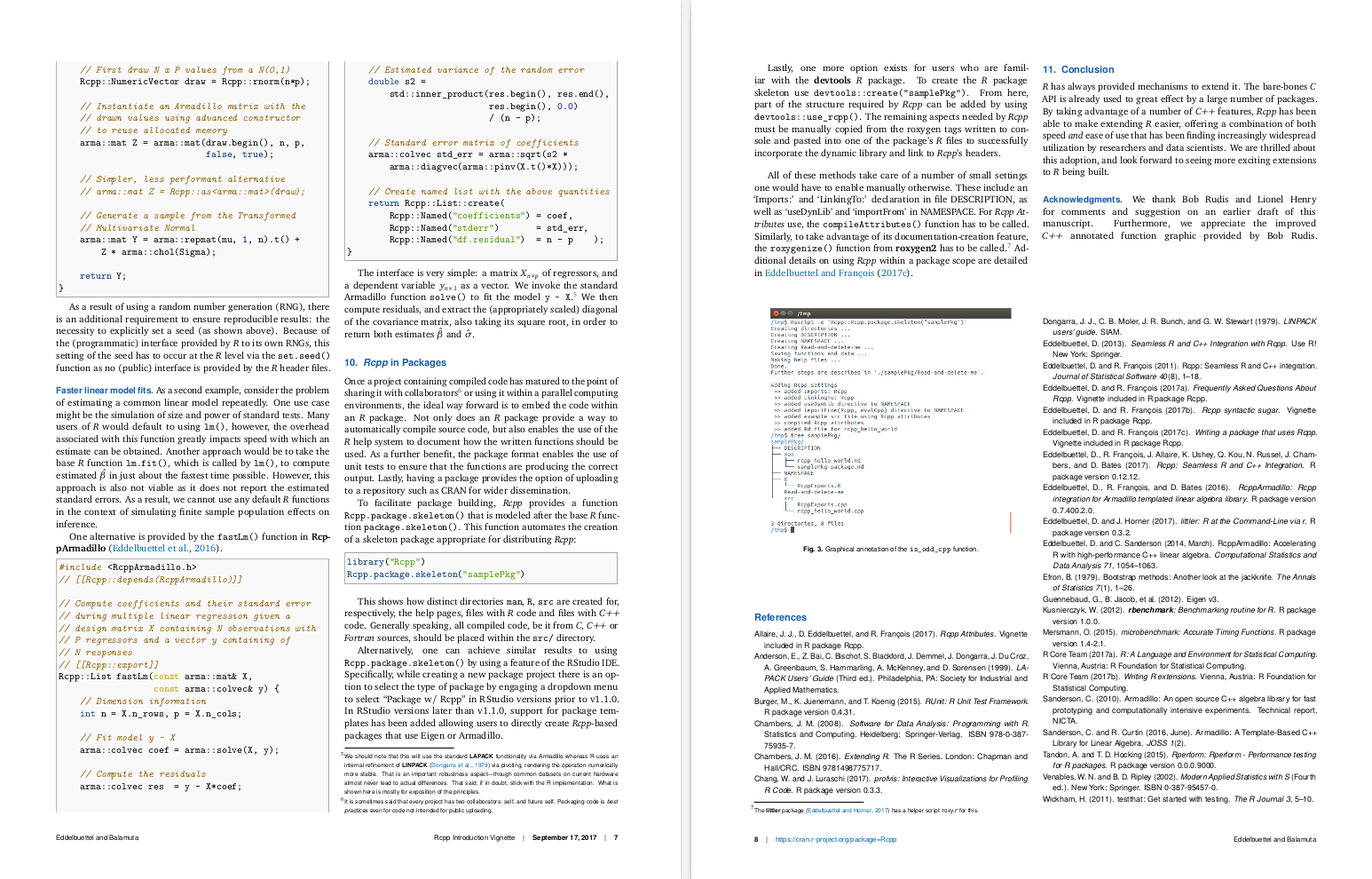
Other Rcpp vignettes have been converted as well.
The package is working as expected, and available via CRAN.
Use the standard
install.packages("pinp")to install it from CRAN, and then use as a Markdown template via RStudio, or use code such as
library(rmarkdown)
draft("mypaper.Rmd", template="pdf", package="pinp", edit=FALSE)
render("mypaper.Rmd")to create a first draft of a new mypaper.Rmd.
Beyond the R package dependencies, a working pandoc
binary is needed. RStudio installs its own copy, otherwise do what is
needed on your OS (i.e., something like
sudo apt-get install pandoc pandoc-citeproc).
The pdf mode requires a fairly complete LaTeX installation, and has been used on Ubuntu and macOS. On Debian/Ubuntu, the following packages should provide a working set:
texlive-base
texlive-binaries
texlive-fonts-extra
texlive-fonts-recommended
texlive-generic-recommended
texlive-humanities
texlive-latex-base
texlive-latex-extra
texlive-latex-recommended
texlive-pictures
texlive-publishers
texlive-scienceand the minm package installing all of them.
Dirk Eddelbuettel and James Balamuta, leaning on the earlier work by JJ et al in the rticles package.
The authors of the underlying PNAS LaTeX Style are not explicitedly listed, but PNAS refers to Overleaf.
GPL-3 for this package, as well as the short code taken with grateful acknowledgements from the rticles package.
The main PNAS LaTeX style file (and supporting files) are under the LPPL (LaTeX Project Public License) version 1.3 or later.